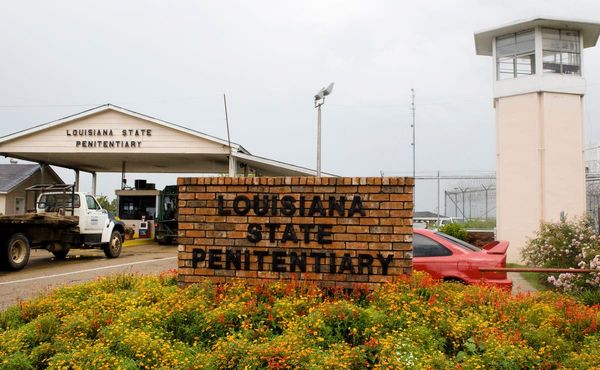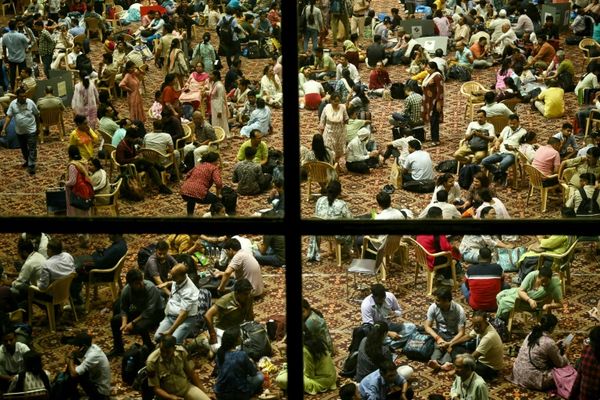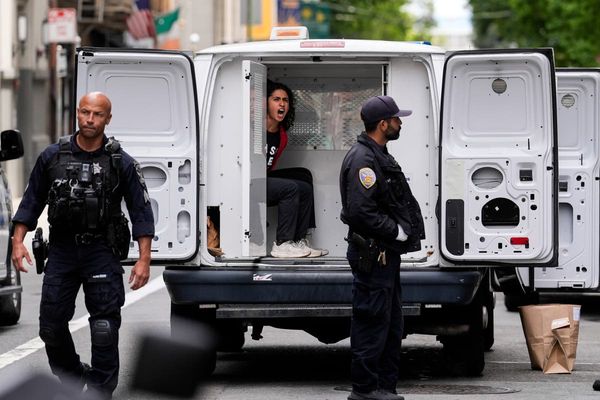
Enveloped in Westminster silence it may be, but every day and in every way Brexit is getting more real. For so long, this was an argument made through the medium of abstract nouns: “freedom”, “sovereignty”, “control”. But now reality is intruding. This week came word that Brexit added almost £6bn to Britons’ food bills over a two-year period, and that it was the households with least that were affected most. There’s a reason politicians refer to “bread-and-butter issues”: because there is nothing abstract about food and what it costs.
Looking back, it was always a tell that leave campaigners sought to avoid the realm of the concrete, preferring to stick with intangible talk of “independence” or a regained mastery of our national destiny. They knew reality was a hostile environment for the Brexit project, one that would expose its folly. Remainers tried to resist, hoping not to fight on the battlefield of dreams but on the terrain of facts and figures, yet it never worked. It just made them sound boring, casting them as spoilsport bean-counters and, besides, all their numbers were themselves abstractions – projections of a hypothetical future. The forecasts of gloom could be, and were, swatted aside as “project fear”.
What’s more, the Brexiters offered material reassurance to those who wanted a dash of concrete mixed in with the vision and romance. They promised there would be an extra £350m a week for the NHS. Britain outside the EU would enjoy the “exact same benefits” it had inside. Daily life wouldn’t just be the same, it would be much better. In 2019, three years after the referendum, Jacob Rees-Mogg was very specific: “I can see the opportunities of cheaper food, clothing and footwear, helping most of all the incomes of the least well-off in our society.”
Cheaper food, he said. We no longer need to rely on either the promises of one side or the projections of the other to determine whether Rees-Mogg was right or wrong about that. Instead we have hard numbers and our own eyes. This week’s research by the London School of Economics (LSE) found that, thanks not to the war in Ukraine or the pandemic or “global factors”, but explicitly to all the extra red tape incurred by Brexit, the cost of food imported from the EU added a total of £210 to the average household’s grocery bill over 2020 and 2021: a 6% increase in that period.
Because poorer families spend a larger share of what little they have on food, that £210 Brexit levy has hit them disproportionately hard. You only have to read the Guardian’s heat or eat diaries to see the impact of rising prices. “I have been stockpiling food for some time,” Londoner Sharron Spice wrote this week. “Tinned vegetables, soups, tuna, fish, corned beef … I have to rotate my tins to make sure they’re in date.”
It’s not as if there isn’t enough food to go around. An estimated 7bn meals went to waste this year, with farmers citing Brexit – and the resulting shortage of fruit and veg pickers – as a key factor. The National Farmers’ Union found some 40% of its members had lost crops because they didn’t have enough people to bring in the harvest. Those shortfalls used to be met by seasonal workers coming in from the continent, but Brexit has shut them out – and so perfectly edible food is left to rot.

Bit by bit, reality is succeeding where rhetoric (and statistical projections) failed. No longer are opponents of Brexit forced to make the case that in a world as interconnected as ours, cutting ties makes no sense. Or that walling yourself off from a trading bloc made up of your nearest neighbours – so that it is harder both to sell your stuff and buy their stuff – is obvious economic lunacy. Reality is making that case instead, day in and day out.
If it’s not at the kitchen table, it’s at the hospital, where strain on the NHS – in the form of those same staff shortages – has been “exacerbated by the Brexit vote”, according to Nuffield Trust research published this week. An earlier Nuffield report found that, “The situation in social care is the most urgent”, with the halt in EU migration barring would-be care workers from coming to this country to help.
Or it may be at the airport, where British holidaymakers are now required to queue for hours where once, armed with their old maroon passports, they could breeze through – so losing a precious chunk of their hard-earned annual break. Or it may be at the ferry terminal, where UK musicians who once earned a decent living performing on the continent now find Brexit has blocked their path. In myriad ways, the material experience of Britain’s departure from the European Union, and, especially, the single market, is doing the job of persuasion that remainers and their arguments tried but failed.
As reality does its work, even those previously sympathetic to the Brexit cause look at it through new eyes. Suddenly the various stats that were once a blur begin to form a pattern. If you’re running a small business that used to be able to get a product into, say, the Netherlands in two days and now finds it takes 21 days, then you get why the number of trade relationships between the UK and EU has fallen by a third – and you understand why the Office for Budget Responsibility calculates that Brexit alone will make Britain 4% worse off. That 4% translates into roughly £100bn less cash generated each year, £40bn less tax revenue – and therefore £40bn less spent on schools, hospitals and all the things we collectively, and desperately, need.
This is why support for Brexit is plunging, each survey setting a record new low. The Conservatives’ decline in the polls both reflects and reinforces the trend because, in the eyes of the voters, Brexit was always a Tory project. The fortunes of the two are tied together. Given that September’s mini-budget torched the Tory reputation for economic competence, it’s bound to have affected public judgment of their signature achievement. Britons felt in their own pockets the impact of Liz Truss’s incompetence: for those who once trusted the party that chose her, that makes the Conservatives’ insistence that Brexit will all work out in the end ring newly hollow.
Long before the pandemic, plenty of liberal commentators and others were warning of the dangers of the new post-truth age. We did our best, but we could tell it was not fully cutting through. It was all a bit too abstract. Then Covid struck and suddenly people saw with great clarity that truth can be the difference between life and death: when an American president muses out loud on the possible virus-killing benefits of injecting bleach, that fact is hard to miss. What was hazy in theory can become sharply clear in practice.
The national argument over Brexit has shifted from abstractions and promises to a cold, increasingly hard reality. For their own reasons, our politicians are silent on it now. But the reality is getting harder to ignore – and every day it gets louder.
Jonathan Freedland is a Guardian columnist







